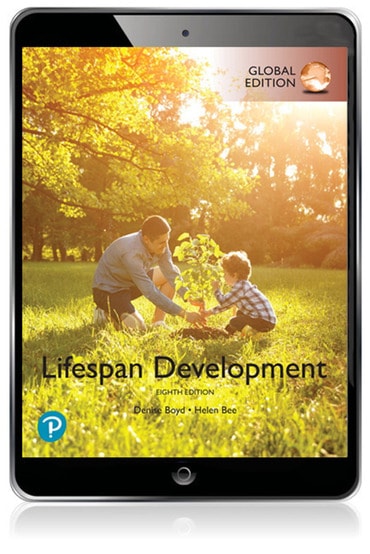
Lifespan Development, Global Edition, 8th edition
Published by Pearson (August 5, 2019) © 2020
- Denise Boyd Houston Community College
- Helen Bee Stanford University
Title overview
For courses in Lifespan Development.
Request a digital sample - for educators >
An introduction to developmental science that focuses on applications and research.
Lifespan Development provides a thorough overview of developmental science, with a focus on helping students apply their understanding of development to their own lives. With a down-to-earth writing style and an emphasis on how concepts connect to research, authors Denise Boyd and Helen Bee make abstract theoretical material understandable to students. In addition to updated content and the latest research, the 8th Edition includes revised themed essays, each with accompanying journaling activities, that offer opportunities to engage deeply with concepts.
